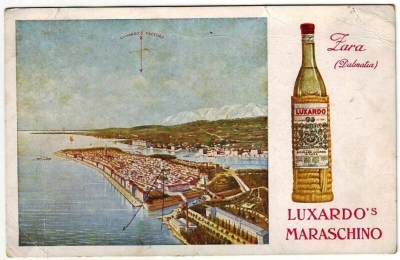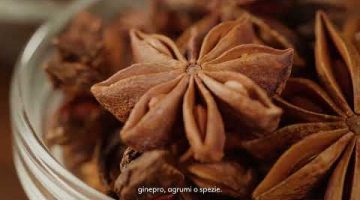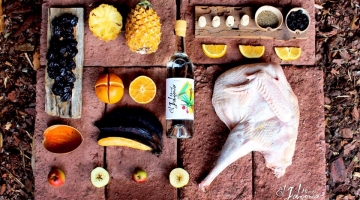If you think doing business as a foreigner in Croatia is difficult these days, imagine being an Italian business owner in Zadar in the 1940s.
Last week's incredible culinary celebration, Festa Days, on the Kornati island of Zut brought together an array of Michelin star and top Croatian chefs, as well as an array of fascinating people. Sitting at dinner, I found myself next to a very charming Italian man named Filippo, and in order to break the ice, I asked him to introduce himself and tell me something interesting about him.
And so began a truly fascinating event - in addition to the wonderful 10-course dinner which you can read about here.
Filippo told me that he was part of the seventh generation Luxardo family, which once was the most important name in the Zadar (or Zara, as the former Dalmatian capital is called in Italian) maraschino business, until the family business was nationalised by Tito in 1944, and the family, along with all Italians, was forced to flee, although at least two members of the family lost their lives.
It was a far cry from the success of the Luxardo company over the previous century after the first Luxardo, Girolamo, arrived in Zara as a businessman in 1817, where he became the consul for the Kingdom of Sardinia in the Austro Hungarian Empire. The interest in the indigenous marasca cherry of Girolamo and his wife, Maria Canevari, led to them perfecting a Rosolia Maraschino, a cherry liqueur produced in Dalmatia since medieval times. In 1821, he founded the distillery which would define his family's fortunes for the next six generations, and within 8 years, he had obtained an exclusive 'Privilege' from the Emperor, recognising the Luxardo Maraschino as a superior product.
Its fame grew quickly, and by 1839, there are recorded reports of the Luxardo Maraschino being used as far away as New Orleans.
Business was very brisk, and the next generations helped to expand it. In 1913, the family built a modern distillery on the Zara waterfront, which became the factory and family home. It remains one of the iconic buildings of the city, but these days is home to the Maraska company, which is also producing maraschino, after the Tito confiscation. It is thought that the Luxardo distillery was the largest one in Europe at the time.
The end of World War I brought the city of Zara within the boundaries of the Kingdom of Italy, and some 85% of the population at that time were Italian, and Luxardo was the most important distillery in the country.
But change and disaster were just around the corner.
Allied bombing destroyed much of Zadar in World War II, including the distillery, but much worse was to follow, as Tito's Partisans took control of the city after the Germans withdrew in 1944, and it then became part of Yugoslavia. Italian property was seized and Italians were forced to flee, while many, including two members of the Luxardo family, were killed.
And that, by rights, should have been the tragic end to a story of more than a century of family enterprise and global success, but this was no ordinary family. The last surviving brother, Giorgio, together with members of the fifth generation of the family, decided to rebuild the entire business in the village of Torreglia, an Italian village at the bottom of the Euganean hills in north-eastern Italy.
With the help of a botanist professor from the University of Florence, land ideal for the production of marasca cherry trees was found, and the rebuilding process began.
Marasca trees were brought over from Zara, and working with the Florence professor, a selection process began, which resulted in the Marasca Luxardo, which is smaller and juicier than other marasca cherries, and which is also more suitable for industrial use.
With the international network of customers and contacts, it was not long before the famous Luxardo name was on the top shelves of quality bars around the name. A growing demand for the Luxardo Maraschino Originale has led to an expansion of Marasca Luxardo orchards in Italy.
Today, the company has a range of high-quality spirits and liqueurs and exports to an impressive 86 countries. It is still owned and run by the family, and the 7th generation Luxardos are doing a fantastic job taking the company into its third century soon. The Luxardo company will be 200 years old in 2021.
And why was Filippo even on Zut? A range of Luxardo spirits and liqueurs were the main attraction at the impressive cocktail workshop which was a popular component of this outstanding event. I really enjoyed meeting him and learned a lot during the evening, in addition to my ignorance about his family story. I was a little skeptical, for example, when he told me that the Italian region of Piedmont produces some of the best rice in the world. The conversation was taking place as Hrvoje Zirojevic's mussel risotto with Pag cheese rind was being served. I asked the waiter if he could find out where the rice was from that Zirojevic had chosen for one of the best dishes of the night.
"Italy, Sir."
There is a VERY charming YouTube video telling the whole story of the Luxardo journey, above, told through the eyes of three generations of the family, and including some great historical photos.
To learn more about Luxardo and its products, visit the official website.
THANKS TO:
















